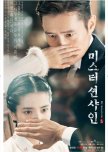
This review may contain spoilers
I have many thoughts about this drama. First the good: it is one of the most atmospheric and beautiful ones I've seen in a while, on par with the quality of Sword and Flower in its cinematic-like portrayal. The framework of certain scenes was just breathtaking. (Changing the aspect ratio at the end as well — just… outstanding). Also, it was very good at building up historical events, like the heart-wrenching fight of the Joseon people, the dread of being colonized by Japan, etc. The latter especially, every time a scene was characterizing that, the camera work paired with the ominous music portrayed the doom-and-gloom perfectly, enough to send chills down your spine. Its action scenes were a work of art as well, with the fast-paced sword work and quickness of biting bullets. When the drama focused on action, it was a joy to watch. If this had been the majority of the drama, I would’ve given it a higher score for sure.Another praise I want to give the drama is its realistic sets and costumes. I loved the mix of traditional and modern clothes, the slow-yet-rapid advancement of technology, etc. It really felt like we were given a glimpse of living in those “turbulent times,” as Ae-shin says at the beginning.
Which leads me to second, the cons. The elements of this drama that made me not rush to watch it, that always had me on the verge of feeling utterly unabsorbed and frustrated at times. The pace is just too slow at times; there are one too many longing looks between the two leads and lingering goodbye scenes. While it could be argued that the pace of the drama matches its tone and atmosphere, that it builds slowly because it’s reflecting how historical events slowly build up with tension until they explode, there’s a balance that unfortunately was mostly not reached. It leaned too heavily into following the slow precession of the hour hand instead of the quick ticking of the second hand on a clock (throwback to Hui-Seong). Those slow scenes lost the tension that is essential for a drama like this. I was reluctantly uninterested in many character-to-character moments when those should’ve been the spine of the plot. Instead, it was the political backdrop and those types of events that held the story together rather than the original story-beats of the drama itself.
Finally, that leads me to the characters. I liked them overall, but I never fell in love with any of them. They had good character arcs (for the most part. Looking at you, Gu Dong-Mae, the man with a million lives) and the actors played them excellently, But there was just something missing, like a disconnect between the characters, their motivations, and the overall story. The characters felt more like an afterthought, a throwaway the director can rely on when they need the story to go forward, but couldn’t use a historical event yet, so they have the characters muse and muddle about in the same problems they’ve had since the beginning. I guess I felt like they weren’t fleshed out enough and didn’t feel like they were an essential enough part of the story, which seems weird because they are the main characters, and they’re /in/ every scene. They just didn’t feel… real enough? I don’t know. My favorites were Hina Kudo, Go Sa-Hong, and Kyle Moore. The other four were lost in their convoluted love-square and unrelenting, stubborn pursuit of a single passion, with the exception of Hui-Seong, who weaved in and out of the story seemingly uselessly until the very end. I liked his final resolution, at least.
I’ll leave it at that. Obviously I had a lot to say, so this drama is memorable in that way. I think it’s overall worth watching, but I would recommend it to people who are most plot-focused than character-driven, and even then to expect some meandering scenes. It was well-acted and brilliantly shot, and it does have many redeeming factors (those last three episodes even got a few tears out of me, which is rare). It’s a decent drama, it just has some outstanding flaws that unfortunately keep it from reaching its best potential.
Was this review helpful to you?
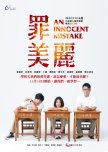
The drama’s title, “An Innocent Mistake” (or the Chinese title “A Beautiful Sin,” which also sounds like “Most Beautiful” when spoken; a nice little pun ^^) doesn’t make sense until the very last few episodes of the drama in its explosion of a climax. But everything leading up to there was, to me at least, wonderfully engrossing and intriguing. There are times I couldn’t believe how twisted the drama was presenting itself as, yet at the same time appreciating the places it went. It definitely didn’t hold back on the darkness lurking beneath the drama’s surface plot.
I think the main point of the story is how two people being in love will always somehow and in some way hurt another person, whether that love be paternal, maternal, romantic, obsessive, idealized, etc. It also addresses how easily it is for that love to transform into hate; and how, in order not to hate, you have to take the situation you saw before your eyes and see it in the other person’s shoe too. The plot was magnificently layered in that way. More that that, it also had a logical beginning, middle, and conclusion, as well as probably one of my favorite TW-drama endings yet. It wasn’t even draggy, though it was a bit slow moving. I felt the pace was just right to build up to the ending. (I should probably point out that the version I watched was 26-episodes at 40 minutes a pop, rather than the 16-episode, 90 min version listed here). It also has some melodramatic elements, but nothing too unbelievable.
The other part of the drama I’d like to gush about are the actors. Not every single person who appeared on the screen was brilliant, but the main cast and most of the supporting cast definitely were. Mo Zi Yi as Yu En had all my feels the moment he fell for Man Qing and you could see every conflicting emotion playing on his face. Lin Chen Xi as Man Qing was an excellent choice to play a stoic young adult who is, basically, a classic tsundere-type character. Mo Zi Yi and Lin Chen Xi as the leads also had incredible chemistry together, which made the drama an even more joy to watch.
The three actresses playing Man Qing’s mothers all filled their roles very well as seasoned actors. They acted so well it felt like they really were surrogate sisters who were healing their broken pasts by living with each other. About the only weak link in the drama both story-wise and acting-wise was Chen Yu An as Zhang Wei Wei, who was used mainly as a plot pusher and whose acting was noticeably weaker than her co-actors. But she only appears at the beginning of the drama then is pushed to the background, so you don’t have to endure her to too long, thankfully.
The music was also not something to exactly write home about either. I liked the opening song well enough, and the ending song had some nice lyrics, but it was just... ordinary. I did like that the drama didn’t overuse those songs like other dramas do sometimes, though. The directors knew when the use the lyric-version and when to use the instrumental-version.
There aren’t that many negatives in this drama, so I’m not sure why it’s so under-watched. It’s not exactly a light and fluffy watch, so I guess that’s kind of a detriment. I would suggest to only watch it with an open mind and being able to have persistence even when the drama feels like it’s going way off onto the weird track. It gets back on the right track with all the finesse a drama with depth should.
Was this review helpful to you?
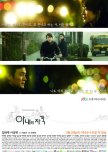
There are essentially four Big Topics being put up for analysis in the drama: What it means to be a wife; what it means to be a mother/parent; the current state of education in primary/secondary schools in Korea; and the ramifications of both wanting a divorce and the consequences that come with having that wish granted. It’s difficult to hammer out each of these topics as a separate theme because they are all melded together through three interconnected families: The Hans, the Jos, and the Ohs. (It may be helpful to look up a family tree beforehand to get their relations straight).
The story as its most basic level centers around Yoon Seo Rae (Kim Hee Ae), a married woman with a son who is about to enter into secondary school. It is through Seo Rae that the drama questions what makes a person qualified to be a “Wife,” and to what extent that right extends to being a “Mother.” Does fitting all the qualifications of being a good wife automatically make Seo Rae a good mother, or does being a good mother to her son (adorably played by Im Je No) make her a good wife? In a society that stresses keeping up family appearances and keeping elders satisfied above all, can a “Wife” be more than a vehicle for her child’s success (and thus a mirror for her own parent’s efforts realized)? Can she still focus on herself occasionally and allow herself to feel like a woman - an individual - again? These are the questions the dramas asks through Yoon Seo Rae’s character; the questions with which she herself struggles time and time again as she is tested by her arrogant in-laws and as she grows through her interactions with Kim Tae Oh (Lee Sung Jae), who is the dentist from the description.
But that is only part of the equation that makes this drama wonderfully thought provoking. Through Kim Tae Oh’s wife, Hong Ji Sun (Lee Tae Ran), we see the privatized education craze from the eyes of someone profiting from it; profiting from housewives who will do anything to make sure their child comes out on top. On the other hand, we also see how a marriage crumbles in on itself through no fault of any particular party. Through the Han family, we see a product of the education craze all grown up - Grandparents who feel their society owes them the world for giving up everything to educate their children, and Grown Children who see themselves as the “Noblesse Oblige,” as Han Sang Jin (Jang Hyeon Seong) tells to his son, which is a result of his own perceived privilege. We also see what the idea of divorce does to a person’s mental state when it is out of their reach: Han Myung Jae (Choi Eun Kyung) is a character you’ll love to hate by the end of the drama, but some of her last scenes definitely make you sympathize what it is like to be stuck in a marriage because of filial obligations. While her situation may on a whole feel like Karma-induced retribution, it is also the drama giving us another portrayal of Wifehood in Korea.
There are so many more points I would like to give attention to in this drama. It is one of the best portrayals of character growth and subtle changes in characters I’ve ever seen depicted. Yoon Seo Rae and Kim Tae Oh’s journey throughout the drama is one of the sweetest, more realistic and mature illustrations of dealing with the prickly topic of adultery. Usually, we only get the perspective from the person who is cheated on, but this drama took care to give us both sides; not only that, but also reasons for the reactions of all the families involved, even when the viewer might not agree with those reactions.
I could go on and on, as you can probably tell, but I’ll also point out some things I felt the drama didn’t do enough with in order to make this review more balanced. It didn’t get a 10 from me for a couple of reasons. One, I felt that the topic of education and the impact it has on the kids involved could have been explored more. We get a child who does really well in school and a child who struggles, but we only know this through exposition, not with actually spending time with the child as a viewer. Two, there were some plotlines that were used solely as plot-drivers in the first half that were completely dropped and never mentioned again in the second (the situation with Yoon Seo Rae’s mother; Kim Tae Oh giving out free dental care, etc.) They’re little strings, but they still left some holes, at least in my mind.
I’ll stop here ’cause this review is getting monstrously long. If you couldn’t already tell, I enjoyed this drama immensely and would recommend it to anyone looking for a deeper, intriguing plot line in a drama. If you can stand slower paced stories (there are scenes where you spend a good 5 minutes just watching a person walking, or sitting, or lost in thought; I happen to really enjoy those types of scenes, especially with the wonderful camera work in this drama, but... I understand it’s not everyone’s cup of tea), and if you want to see how a typical family drama in Korea usually unfolds without having to devote yourself to the normal 50+ episodes, then give A Wife’s Credentials a try.
Was this review helpful to you?

This review may contain spoilers
This was a very interesting drama. I enjoyed it immensely up until a point, after which my interest seriously waned and the drama’s rating dropped a few points in my eyes. But the ending made up for that short period of abysmal-ness, leaving this drama with a solid 8 rating.The best part of this drama was the characters, especially when combined with the acting. Definitely the star of this whole ride was Wang Kingone. His performance as Fang Zhan Cheng outshone all of his co-stars, though I may be a little biased because the character as written is one of my favorite types — someone who’s able to keep calm and in control of their emotions even when everything’s falling apart around them. The character by itself would’ve already scored major points in my book, and Wang Kingone played him excellently throughout the entire drama. Kudos to him.
Ren Lorene on the other hand was kind of a mixed bag of good and not-so-good acting points. But her character wasn’t the most stable, either, so I think she worked the best she could with what she had. Her emotional scenes were for the most part well done and touching, but her... yelling/excited scenes, I guess you could call them, felt a little awkward and overdone. Also, her character didn’t have enough versatility. I get really annoyed with the characters who’re portrayed as saints and can’t do anything wrong just because they are supposedly acting in other people’s interests. You can think you’re doing something for someone else’s sake and still be selfish and in the wrong. I felt her character made some deliberately unwise choices that weren’t fully put in the negative light they should’ve been. And in the end, they were just brushed over because her character is too “good” to deserve any sort of consequences for her actions. I would have also liked to see her having to chase after Fang Zhan Cheng after what she did instead of always having him do all the work to get their relationship back on the right track.
The side characters and romances were pretty interesting and worked into the story in a coherent way as well. I had a fascination with Lee Sean’s character Li Bo Yan for the first half of the drama because he was so bad, yet at the same time so deliciously multi-layered. Points to Lee Sean for not allowing him to be the one-dimensional character he easily could’ve evolved into (though the writing at the end unfortunately ended that wonderment with a firm and unnecessary period on my feelings toward him -.-). Fei-Fei and Yu-An’s story was cute if a bit on the dull side, and Vanessa was a good mature-type character who was very clear-headed and a breath of rational fresh air. Xu Ya Ti I had some issues with because she seemed like a character used mostly for the sake of driving the plot forward when it got caught in its several ruts, but she was okay as a second-lead. A bit too one-dimensional to really strike a cord for any emotional responses, really. At least there were no long, drawn-out love triangles. These characters were very good at sticking to their guns and liking whom they knew they liked and not leading anyone on.
As for the story... well, that’s where my opinion of the drama goes up, down, and weaves around like its perched on a very precarious high cliff that crumbles and cracks with each episode, just waiting to plummet to the ground. When this drama was good, it really was good. It has beautiful scenery, beautiful directing, quotable and thought-provoking speeches, and a refreshing look on how to move on from losing someone dear to you. I liked its pace and its story for the first 16 episodes, I really did. I was about soundly ready to give it a solid 9 before episode 17 rolled around and my opinion fell faster than a baby bird jumping off that cliff and learning to fly. I just... I hated where this drama went. I hated how it felt like they needed to fill these episodes with everything and anything, so they just threw in a hodge-podge of nonsense at the wall and let things stick for as long as they could, then let them fall off the wall never to be mentioned again. The very last dramatic arc in particular left a very bad taste in my mouth and had me looking for anything to divert my attention during those scenes just because I couldn’t stand it. I can’t say what happened without giving major spoilers, but let’s just say it’s something I don’t agree with and think should never happen in drama-land, god forbid it ever happens in real life.
But, nevertheless, the ending more or less makes up for that mess. Like I said, the writers were good about just dropping things that happened like they never took place, so by the last minutes of the final episode, things got back on track and we were back to the storyline that made the drama so memorable and wonderful in the first place — how Fang Zhan Cheng and Chen Yu Xi learnt to find solace in each other’s company to such an extent they could never do without the other. Their chemistry is wonderful, and the scenes where they barely say anything and let their actions — in particular, their eyes — speak for them are just so well done (a large part of those scenes being so good being because of the directing, as well).
Overall, Someone Like You is a good drama. I’d recommend someone who's looking for a 2015 TW-drama to watch to give it a try, because it’s at least better than the other dramas that’ve been showing this season (in my opinion, of course). Especially if you like stories dealing with healing and moving on from tragedy, this is the drama for you. It has a pretty good pace (if a bit slow at times), a good soundtrack (if a bit repetitive at times), and good acting. Oh, and watch the opening credits, too. They really are lovely, and they will give you a feel for how beautiful the drama is shot and how the story lays itself out.
Was this review helpful to you?

This review may contain spoilers
One and a Half Summer is a very light and fluffy drama. I came into it not knowing any of the actors, though it features an idol from Korea (Nichkhun, 2PM) as one its main leads. But that’s neither here nor there if you don’t know who he is (like me) ^^;What I liked most about this drama is the camera work, oddly enough. That’s what’s captured my attention in the first episode. It’s not quite as artistic as say, Sword and Flower, but it has a certain finesse to it that engaged me in the scenes. It was just very crisp, clean, and not as soap opera-esque, let-me-flat-focus-on-your-face-for-this-whole-scene, as other dramas tend to be sometimes.
As for the actors and characters themselves, they were the next best part of the drama. Everyone acted very well, but I had my favorites. Nick Chou as Tang Bo Wen was definitely one of those. I could watch him act any day. He was very good at playing a guy very quiet and in control of himself but finds himself falling for a girl who doesn’t quite love him back in the same way. Funnily enough, I was so entranced by his acting that I lost a little bit of interest in the main lead’s love triangle and found myself anticipating the next scene with him in it (heh...) The actor who plays Ma Jun Cai was also very entertaining to watch as the sort of dweeb of the group.
That brings me to the storyline itself. It is very basic and probably one of the weaker points of the drama, just because it is so standard. It’s just some kids on a university campus and their love stories, basically. Oh, and one love story between older characters (30s-ish). The main leads have a love triangle; someone’s always pining after the one person they decided to like but can’t be together with; etc. One thing I do want to give props to the drama for is giving the second male lead a real chance, though. Without giving away any spoilers, even though the characters mostly fall for the person who’s out of their reach, the writers did give each character a fair fighting chance to express themselves to the other party, at least. Communication was never lacking between the characters, a facet I appreciated (much better than lack of communication or the silent noble idiots dramas tend to have in abundance).
The music was good, too. I like how they incorporated the main song (which has the same name as the show itself) into one of the drama’s overarching plots. Another thing that kind of threw me off though, is that they used the instrumentals from In Time With You as background music >< It was a bit off-putting, but I got used to it.
And I’ll just mention this because it’s an important part of Mainland China dramas: The dubbing. The only noticeable dubbing in this drama was over Nichkhun (his mouth never matches what’s being said). Other that than, there’s little to no dubbing over the rest of the actor’s voices (only occasionally when they’re in a loud place like the cafeteria. And even then, it’s minimal).
The second to worst part of the drama was the overuse of flashbacks. Constantly. Just about every other scene, I swear. Just about killed me.
The worst part of the drama was the ending. I like to pretend it didn’t happen and would rather just imagine my own more satisfactory ending. It definitely puts the emphasis on “ambiguous” and draws out a “That’s it? The end?” from the viewer >.>
In short, out of the four Mainland China dramas I’ve watched, this is one of the better ones for sure. I would recommend watching this if:
-You like Nichkhun (or any of the actors)
-You like university/school-based dramas
-You like characters communicating with each other
-You like love triangles
Don’t watch if:
-You like dramas with deep, introspective plot lines
-You like a lot of romance/skin-ship
-You hate pining/angsty characters
-You hate flashbacks every episode for scenes that you just saw
Was this review helpful to you?

This review may contain spoilers
Friendship and Growing Stronger
I really enjoyed this drama. It was one of the ones where I started out thinking "I'll just watch an episode or two here and there; it'll be a good filler when I don't have time to invest in longer episodes, or when I want a break from my main drama," but it ended up capturing all of my attention around the 10~20-episode mark and refused to let go until the final episode. It was an easy watch, with good pacing and a light, digestible story.The core theme of this drama is definitely friendship, as at its essence is the group of six girls whose trials and tribulations we follow as they graduate university and begin their official adult lives. It was an utter joy to watch these five friends interact, and their dialogues felt very natural and realistic. Their total loyalty for each other was very touching, yet at the same time, they also went through the head-butting and arguments that all friendships have to endure in order to become stronger.
One of the things I liked best about this drama was all the scenes felt intentional, and almost every action had a subsequent consequence. The drama felt well planned out from the beginning because of this connection between scenes -- sometimes scenes that took place tens of episodes apart from each other. Also, most of the main characters (with the exception of one of the girls) had complete character arcs that exhibited their character growth as they become mature adults.
Out of the five, I liked Qian Man the most from the beginning - she has a good, reasonable approach to dealing with her often too-head-strong friends, and is a good balancer, which also having a straight-forward personality of her own. Maggie is just a complete sweetheart who suffers blow after blow but ends up growing into a strong person without losing that heartwarming sweetness. Tian Tian is adorable, and the way she strives to be the best she can to achieve her dream and take care of her single mom is admirable, and she slowly learns how to rely on others more through quite a shocking and heart-wrenching series of events. Ming Shan I had to warm up to as she's has a bit too all-holds-bards approach to doing things, not giving enough thought to the consequences or after-effects on either herself or others, but she also slowly learns how to take a step back and assess before jumping in feet first. Dan Fang got kind of the short end of the stick development-wise, but she's very loyal to her friends and her family and grows out of her semi-spoiled rich daughter status.
While the focus of the drama was on the journey of those five friends, the guys involved in their lives also got a good amount of attention and their own arcs. In full honesty, I didn't really like Shi Ye / Tian Shuo at first, but by the time he started melting his outside wall and letting Ming Shan in, I also began to grow to like him and understand why he acts the way he does (though, a little to my frustration, some of the reasons behind his actions, of which have enormous effects on the core story, aren't explained at all; rather, answers are just hinted at). I appreciated his character by the end, though, and I love the way he interacts with Ming Shan and the understanding, respectful, and mature relationship they end up having. Ah Sam became one of my favorite characters pretty early on -- I loved his humor and the way he deals with Tian Shuo's hard-edged comments and harsh words; he has a kind of lackadaisical attitude that I admire. Yue Fang had such an interesting backstory that was slowly unveiled as we learnt more about him, his background, his beliefs, and what makes him who he is today. His unveiling is a bit slow but worth the wait. Yin Ze, Ming Shan's boss, also comes with some surprising developments of his own, and the way he's introduced becomes the antithesis of his actual personality. I also grew to like him and his over-exaggerated way of dealing with things, though that development felt a little heavy-handed by the writers. Kai Yu was a goofy bundle of goodness as well, though his act could get a little tiresome at times, he made of all things goods, so I couldn't help but like him.
I think another theme that they did a good job of exploring was "Starting Over." There are many characters in this story who must be given a second chance, who make the wrong decisions at first, sometimes to dire consequences, but are able to make amends or restart through their own effort and reforming their mindset. Especially towards the end, the last big conflict in the story involves someone who has made a lot of mistakes, but upon realizing the error of their ways and asking Ming Shan for advice about what they should do, Ming Shan tells them (heavily paraphrased): "Just start over. One step at a time, day by day, try to be a better person tomorrow, and an even better person after that." There are many scenes like this that had good advice and adages that could be applied to real life, and I think that is also one of the strengths of this drama.
Overall, I had fun watching this drama, and I'm sad it's over. While there were some faults I had with it -- it tried to be an action drama at times, which it was most definitely not; characters would disappear for episodes at a time without explanation, etc. -- the pros definitely outweigh the cons. I recommend giving it a shot if it sounds interesting to you!
Was this review helpful to you?
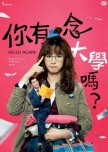
This review may contain spoilers
What an interesting drama. It took a while to grow on me for several reasons, and I’m not completely satisfied with the result, but by the latter half, it had me laughing out loud, tearing up, and rooting for these characters despite their decisions.I think the theme of this drama was choice. It tried to convey through various storylines and characters how only you can choose how you live, how you interact with the world, and how you love. Only you have the power to control your life, and you shouldn’t let others dictate it for you — focus on who you want in your life, and let the haters and negative Nancys fall to the wayside. This theme is most explored in our main female character, Ke Ai.
She’s had a rough go of it, our Ke Ai. A top student who couldn’t attend university despite ranking number one in the entrance exams. Having to work and work and work just to pay off the minimum balance of a loan she didn’t even take out; her life is, needless to say, difficult. She has no agency, no choice in the matter, she’s just a slave to her family’s wrong decisions. Then, in walks our male lead, Zi Hao. He picks up her loan’s remaining balance and sets her life on a new path: Now she has to prove herself in a company setting — the job she would’ve probably would have had she not had to drop out of uni. Suddenly, she has some control over her life. She can choose to stay a lowly salesperson, which her current education dictates she should be, or she can climb to the top, where her ability and Zi Hao insist she belongs. It’s her choice — become the person society says she can be, or shun society’s expectations and become something more. It has slow character growth, but it's worth experiencing, I think. It takes a while to get to the meat of her insecurity and why she acts the way she does at the beginning, but I think they did a pretty good job of portraying how hard it is to defy and ignore the people who want to bring you down and believe in yourself in spite of them. Also, to let go of your own self-doubt and let the words of the people around you drown out your own mind’s constant buzz of insecurities.
Another interesting way it had the theme of choice is in its love stories. Of course, Zi Hao and Ke Ai’s love story is pretty conventional — can the lowly girl love the hot shot general manager of a big company? (Though I gotta say, Zi Hao is, overall, an amazing love interest whose support and belief in Ke Ai never wavers. He always has her best interest at heart and does excellently with the usual obstacles of this kind of love story: parents, coworkers, shareholders, etc.) The second leads, Zhen Yi and Zi Jie are much more unconventional and interesting with their choices and outcomes. The story of Zhen Yi and Zi Jie is especially unconventional, and trying not to put spoilers here, but the idea of gender fluidity was explored a bit, and while I think they used the wrong terms to identify some of their identities, they do a pretty good job of showing it’s not about a boy loving a girl, or a girl loving a girl, boy loving a boy, etc., it’s finding someone who you can connect with no matter what their identity. It’s looking beyond all of that and just seeing that person as themself, nothing more, nothing less. There are some points in this part of the story that are too cliché and outdated that they could’ve done without, but overall I think it was done in a thoughtful way.
Then there’s poor Lee Sean’s character, Xiao Gang, who never gets the girl in the end even though he always plays the most multifaceted characters. This time, Xiao Gang is pretty cut and dry — he’s just a really, really good guy who had a troublesome past and prevents him from seeking his own happiness. He’s constrained by his choices because he believes nobody will ever love him (because he wasn’t loved as a child), but eventually shows autonomy and fights for himself. Except, he chooses to honor Ke Ai’s choices above everything else. His choice is to put everyone’s happiness above his own, and in the end even though he’s not rewarded the traditional way, he does gain the family he had been missing his whole life (in a very, very touching scene that had me tearing up). In the end, we're shown the result of the choice he made and doesn’t regret (or, at least, doesn’t go back on it and keep pining after someone he’s let go of), which I admired.
To be fair, though, everything was not well with this drama. One of the biggest qualms I had at first was its tone. It swung from slapstick comedy to serious pretty frequently and without any warning, so the effect was pretty jarring. It had all the classic tropes of a TW drama with the endless sound effects, looping background music, and cliché storyline. The male lead, Zi Hao, is in a position of power over the female lead, Ke Ai, and he isn’t afraid to flaunt it (especially in the beginning), which can lead to some pretty cringy scenarios. Things like ordering Ke Ai to do things she didn’t want to do, forcibly setting up her life (albeit with good intentions) without discussing it with her first, picking her up over his shoulder when she refuses to go places — all of those things that can kind of work in fiction, but give an unsettling feeling because of their implications for real life. Nobody should be treated like a rag-doll without autonomy, and even though Zi Hao does these things with a kind heart, it doesn’t make them okay. This drama also suffers from a lack of communication between the two leads very frequently.
Another problem I had with this drama was its set up. It took waaaaay too long for me to actually care about these characters. That’s because their motivations and ways of thinking weren’t clearly established in the beginning. It took until about halfway for me to have any sort of investment or care about any of the characters. Before that, they were kind of just caricatures, doing things just because it’s expected of a romantic comedy to do so. For example, Zi Hao helps Ke Ai with her loan shark problem and sets her up with a job with his company. That’s all well and good, but we don’t really understand why he did that until much, much later (pretty much the last episode). We can guess that it’s because he likes her, or had a crush on her before, but it’s not clearly conveyed that that’s what’s going on. That’s just one example. There are several. And the tone problem I mentioned earlier doesn’t help much in the way of clearing things up, either. It’s not until the drama begins to settle down and have more serious scenes that it can clearly show us the reasons behind the character’s actions. I’d say Ke Ai suffers from this a lot more than Zi Hao does, but that’s probably because her whole situation is just more complicated than his overall. (Though their romance is super sweet, and their interactions with each other in that regard were done super well, in my opinion).
All in all, I enjoyed this drama despite its flaws. I never considered dropping it, though there were some scenes I wish the director/writer had done differently. It had a good building up of its romances (and some pretty steamy kissing scenes, if I may so so), and some interesting themes to explore. When it dove into explorations of those themes, it was very thought-provoking, and I found myself hanging onto the characters every word. But it could also be very shallow and cliché at times, seemingly forgetting all the deep scenes it had set up just a few minutes ago. I say watch it if you’re looking for a decent TW rom-com. It doesn’t really drag, the romance is cute, and its cast is quite easy on the eyes. ^^
Was this review helpful to you?

The difference between "loneliness" and "being alone"
This was a wonderful drama. If you like slower-paced dramas that are more about contemplating problems than providing a constant string of entertainment, this one is for you.At the core of the drama is the question "How can one learn to be comfortable with oneself?" What is the difference between "loneliness" and "being alone"? We have two points of view contemplating this problem.
First, the female lead had loneliness forced upon her - as said in the summary, she broke up with her long-term boyfriend, and now has to learn how to be comfortable being by herself. In the absence of constant companionship, who's left to accompany you except your own self? The first half of the drama is following her as she contemplates and discusses various situations with those around her : would you be willing to eat at a restaurant on your own? Visit the seaside by yourself? Move house by yourself? While these are simple problems, they are presented in such a way that examines to what extent we should rely on others, and to what extent we need to learn to rely on ourselves. Her story really reminds me of the journey of moving away from home and getting your first job in society - all these little problems arising that were simply taken care of before by others that you now have to learn how to deal with on your own, the insecurity of just going out there and doing things without someone to catch you if you falter.
Second, the male lead approaches the problem of loneliness from the opposite direction. His loneliness is self-afflicted. It is his choice to not get close to people, to not form close relationships. Due to some things that happened in his past, he believes self-isolation is the best way to deal with this world, that in general people are unreliable, so why even try to start a relationship (romantic or otherwise) with someone in the first place? ("We're born alone in this world, thus we should also expect to leave it alone.") While the female lead learns how to rely on herself more, the male lead needs to learn how to balance his need for solitude and peace with the universal human need for human connection.
Thus, the two leads weave in and out of each other's lives, finding comfort in communicating with each other via text rather than in-person, slowly reshaping their lives as their worldview expands. The supporting characters also add good commentary to the core question, and all of their viewpoints vary in some way from the two leads', giving the audience many insights into how to balance being bravely independence with the need to connect with another person.
A wonderfully shot drama with an excellent OST and meaningful message. Strongly recommended if you're interested!
Was this review helpful to you?
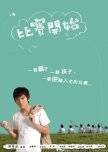
"If you don't make a choice, how are you going to continue your life?"
I enjoyed this drama. Though some parts were a bit slow, the overall message and themes of the drama really touched me, and I was already missing all of the characters (and the main theme song) by the last episode.First and foremost, a disclaimer. This is a drama about baseball. Not every scene has baseball in it, but that sport that means so much to Jiqi, the town in which the story is set, is the core that both consumes and propels these characters on. So, if you’re not a big fan of baseball, maybe mentally prepare yourself or even pass on this one, because there are large portions where they are just literally playing baseball/training for baseball games. (I am a huge fan of baseball myself, particularly youth baseball — I watch the Williamsport Little League World Series every year — so this was right up my alley).
The story is basically about how to deal with the tides of life. This is a very realistic drama, set in a very tough time in Taiwanese history (it starts around 1968 and spans about five or more years, during the peak of White Terror). It has its light-hearted moments, but there are also some really harsh and (surprisingly) terrible things these characters go through.
But that’s the point of the story. Its message is not “If you try hard enough, everything’s going to be all right”; it’s not that idealistic. Rather, it’s more like “Hard things are going to happen and you are going to fall, but you can pick yourself back up and you can try again; allow the people around you to be your strength as you find a way to stand on your own again” (a really long catch-phrase).
The message is also about choices — the choices we make, however small, that affect our whole lives. The choices we have to live with, and how, even if we can’t reverse time, we can make up for the mistaken choices we’ve made.
The story is divided into two parts — childhood and young adulthood (or young adulthood and adulthood for the older characters). The main character (though it could be argued that everyone in the story is a main character, as almost all of them get their own storylines) is Li Qi Ming, played by Lego Lee. Qi Ming starts the story much, much different from how he ends it, and it is through his eyes that we experience the bulk of the fear that comes with living in the White Terror era. Through him, though, we also experience what it’s like to devote yourself wholeheartedly to something you love despite any of the outward criticisms or inward hesitation. To find a family when you can't face your own; how to own up to your actions and accept the consequences of your decisions without giving into cynicism and giving up on life itself. Qi Ming loves baseball, and it is through this love that he can survive all of the terrible things that befall him.
The greatest strength of this drama is the relationships. The relationship between the group of boys (and one girl) on the baseball team is really endearing, in both their childhood and their youth. These kids come from a really tough background and don’t even have money to buy real equipment; however, what they lack in material, they make up for in heart and work ethic. What I like most about their storylines is that although they don’t always get along, and though they sometimes go down the wrong path, when someone wants to come back and make amends, they are always welcomed with open arms and understanding. They are such a strong group of individuals who learn how to push back against the negative stereotypes others have about them (most are of aboriginal origin) and become the best versions of themselves.
The relationship between the adults is an interesting progression as well, and without going too much into it, the direction the relationships go is definitely unexpected, especially for an (idol) drama. They definitely went for the extremely realistic route in the very, very slight romance storylines they have here.
Of course, not everything was great about this drama. There is a looooot of wooden, not-so-great acting performances, by the children, the young adults, and the adults. It’s easier to say who stood out as a good performance than give a list of the not-so-good. Of course, Lego Lee was excellent as Qi Ming; Alice Ke did a good job of a young girl unsure of what her next step should be in life; both of Lala’s actors were good (childhood and young adult actor Edison Wang); and Lin Ya Lin as Wei Ting really grew on me by the end. The others had their moments and surprised me with the depth of their acting at times, but more often than not, it, unfortunately, fell pretty flat. (All those stiff line deliveries! And sometimes their voices sounded like a little kid's when they were supposed to be practically adults!)
If you can ignore/get over that, though, the story is a rich experience that’s outside of the box as far as your typical drama goes. I recommend it if you’re looking for something inspirational and healing, while at the same time giving a good insight into Taiwan at a very turbulent time in history.
Was this review helpful to you?
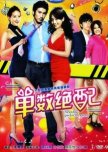
Like any drama, Odd Perfect Match had its good and bad points. It’s just unfortunate for this one that its bad points far outweighed the things it did well, like humor. If all this drama focused on was delivering humorous scenes, I would have scored it much higher because when it didn’t take itself seriously and poked fun at the ridiculous situations the nonsensical characters were involved in, it was a joy to watch. Those types of scene are numerous in the first few episodes, but slowly fade away until only one of the supporting couples are left to carry the torch.
This lack of humor is made more evident by the negative aspects of the drama, largely its acting and execution. The story itself is pretty average by drama standards, and if it wasn’t bogged down by actors that sounded and acted like they were merely reciting lines they had rote memorized for a subject they haven’t the slightest interest in, it might actually have had some merit. The worst offender was Chen Shawn who plays the second male lead Ding Hai Mo, but others (Wang Shuan, Wu Maggie, etc.) also suffered from this Robot Syndrome that had me rolling my eyes and zoning out for long stretches of time.
Another fault I have with this drama, as mentioned earlier, is its execution. Basically, almost every character is shaped by their unbelievably tragic pasts filled with all sorts of emotional trauma. The notion that this trauma has stunted their growth is sort of present during the storyline, but mostly it just felt like the writers wanting to use any means possible for the audience to feel sympathy for these one-dimensional characters. Bad things happened in their past, and that’s the scope of their character. The writers thought, I guess, that that’s all we need to go by.
This is kind of redeemed in the last three episodes (by far the best of the drama, if you get that far), in which the characters finally stop acting so robotized, learn how to cry properly, discover they are adults and they do in fact have control of their own lives and decisions, and have massive amounts of character growth that had been missing for the ten or so episodes during which nothing of importance really happened.
Gao Godfrey and Yang Ming Wei were the only actors whose performance was the least bit entertaining/up to standard (and even they fall flat sometimes. Especially in those middle episodes...) All of the female characters are either annoying as a high-pitched whistle is to a dog’s ear, or have the intelligence of a 5-year-old (looking at you Tseng Alice / Huai Zheng -.-). This is just my opinion of course, but I didn’t find any of the characters really likeable in any way, just some were easier to take for long stretches of time than others.
All in all, I would tell anyone to skip this drama unless they are die-hard fans of the main leads (and even then, prepare yourself for some low-quality acting). The story is all right, but it’s executed so poorly that any of its greater points gets lost in the mess of bad acting and monotony. If anything, skip to the last three episodes. Everything that happens then is all you really need to know to get the gist of the story and its, I suppose, reasonably satisfying conclusion. Nothing is left unresolved, at least.
Was this review helpful to you?
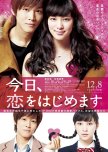
The Story: Compared to the manga, this story is much the same when dealing with the two main characters, Tsubaki and Kyouta, but when it comes to the backstories, well... much was changed. Especially when dealing with Tsubaki's and Kyouta's family life, much too much was changed in my opinion - but like I said, I had expectations. Certainly without having read the manga, these stories would have been much easier to digest and accept.
The Cast: I felt the two main casts performed well enough in their roles. I personally enjoyed Matsuzaki's portrayal of Kyouta more than Emi's of Tsubaki, but overall they captured the essence of "first love/relationship" that is the basis of the plot line in the manga. The support cast was also good, and I did enjoy Yamazaki as Nishiki during the beach scene. Definitely one of the more funny moments in the movie.
The Music: Poppy, but it fit the scenes it was played in. No complaints on this front.
Rewatch Value: I will probably watch this again as background noise, and just because it is one of my favorite mangas come to life. Can't beat that, no matter how disappointing the backstories ^^
Overall: I would suggest that readers of the manga watch this, if only to see the main casts portrayal of Tsubaki and Kyouta, and for non-readers as well as people who are interested in seeing a simple, sweet high school love story.
Was this review helpful to you?

This review may contain spoilers
Great Potential, Poor Overall Execution
I have very mixed feelings about this drama. There are some things it did really well and I respect the extent to which it stuck with the themes it was exploring, even when they resulted in outcomes that weren’t necessarily what the audience would have wanted. At the same time, it had several flaws and an inconsistent storyline that severely impacted the overall delivery.First, the good things. I think I might be in the minority when I say, after sitting on it, I actually like that ending. Well… maybe “like” is too strong a word, but I respect it for what it is, and how it represents the message the drama was trying to impart. And what is that message exactly? Like the title says, it’s about being “sandwiched.” This is a drama that explores the effect our jobs can have on our lives, to what extent we should devote ourselves to our work, what limits we should set for ourselves regarding work vs. personal life — what value does work play in our overall happiness, and how much of ourselves we should tie up up work. The drama does a good job of exploring these questions through a variety of characters.
For example, to the female lead, Su Hsiao Ching, work is everything. She is unable to draw a line between her work and her self-worth, and thus any bad thing that happens at work is a direct reflection of her life’s value. This is something that she needs to fix and does so throughout the drama in a good show of character growth. On the other hand, to the male lead, Luo Cheng Kai, work is a means to an end. His sole focus is to be successful so he can help out his family, and in doing so, he throws himself and his personal needs away and becomes the embodiment of the Establishment, a “bad guy” whose job is only to make companies successful regardless of how it reflects on him as a person. He also needs to fix this and does so to a lesser extent than the female lead, but still had a pretty good character arc.
The side characters also all represent different degrees of workplace enthusiasm, from the people who put their careers above their families and then have to find a compromise somewhere in between, to the manager who always dumps all his work onto his subordinates and finding out the reason why he does so and which skills are necessary for surviving in a higher-level position for any prolonged amount of time. The friendships and workplace relationships were also a joy to watch. An ideal workplace for sure!
What I liked most about this drama, which took me a while to get used to and appreciate, is the level of reality they used to solve problems. There are no “magic solutions” here, no “hard work conquers all.” Sometimes, even though the main characters tried their best and did all the right things, their problems just didn’t get solved and they had to let go of things they wanted. I really appreciated that once I realized that was the approach the writing was taking. Just like in real life, things don’t always pan out and you have to start over or reassess the direction you’re going in regards to your work or personal life.
I also appreciated the progression of the love story, though I would warn going into this to not expect a typical love plot. The leads get together pretty early on, but they are inundated by a myriad of problems that have no obvious solutions. The drama also addresses these problems with a dose of reality and there are no quick solutions. As a result, their relationship’s evolution is quite natural, if not the way most people would expect/want. The female lead’s reason for some of her actions towards the male lead is something that I understood but didn’t necessarily agree with, but I think that’s also part of the overall message of the drama. The leads were portrayed as flawed individuals throughout, and being together isn’t some magic elixir that can solve all of those flaws in the span of eighteen episodes. Flaws take time to wrinkle out, and sometimes the result you want is not the one that is most realistic or attainable. Growing ourselves is a life-long process, after all; no one's personality stays stagnant.
As for the actors, I loved Marcus Chang in this. He portrayed both vulnerability and ruthlessness pretty flawlessly, easily bouncing between the two extremes as his character demanded. I also have a high fondness for Sean Lee and Tannie Huang, so it was great to see all of these three incredible actors and actresses come together for one drama, even if it wasn’t the best scripted or directed. Kelly Liao has also caught my attention as someone to look out for.
Now, onto the flaws. I think the biggest flaw this drama has is its inconsistent writing. There were way too many loose threads interspersed throughout the runtime of the drama, and while most of them got a conclusion eventually, it wasn’t as cohesive as it should have or could have been. Also, the directing of some scenes was a bit off-putting. There were several times where what they were showing should have been touching or really strong, climactic scenes, but instead, the flatness of the shots and the character’s output of emotions just didn’t hit right. It could have either been a combination of the writing and the directing or one or the other, but either way, it made the show hard to watch at times. It’s painful to watch scenes that you know could be super impactful and thought-provoking, only for them to fall flat.
The second flaw was the portrayal of the female lead and the second male lead. The female lead is a complicated one because while there were some things done very well with her character, and she did have a complete arc in the end, I didn’t really end the show feeling I knew her as well as I should have. It was hard to discern where her motivations and reasons for doing things came from until they were explicitly spelled out in the form of arguments, whereas it would have been better if they had built it up through her actions, and then the arguments were the cumulation of her thoughts and actions that we already understood. She definitely could have been written more strongly.
Furthermore, the “love triangle” / implementation of the second male lead was poorly done. He barely gets any screen time, and his overall story is just super weak. About a third way through the drama, he gets a much-needed background story and motivations for his actions, but it’s a bit too late to mean anything to the overall love story. He’s already out before he’s had a chance to begin, basically.
Overall, I have mixed feelings about this drama because while I enjoyed the directions it went once I understood its intentions, there are some parts I wish could have been done much better to deliver a more well-rounded and overall satisfactory conclusion. This drama had so much potential, but such poor overall execution. Many scenes stuck with me and were done wonderfully, but an equal amount had me low-key cringing.
Was this review helpful to you?

This review may contain spoilers
Good Idea, Lackluster Execution
For me, this drama was the definition of normal; an ordinary, long drawn-out "meh." It had some interesting ideas and really, really tried to drive home its theme of exploring how to move on from past pain without ignoring or forgetting the events themselves, but the way it did so was very lackluster and bland for the most part. It actually reminded me a lot of the k-drama Gentleman's Dignity -- a drama I hated with a vicious passion -- so... that was... fun. Thankfully, it wasn't quite as irredeemable as that (black) gem. Admittedly, I also have a bit of a soft spot for dramas that deal with publishing and authorship, which is another reason why I could hold in there for so long as well.To start, I really liked the main female lead, Ming Tian Ai. She was adorable and had a good head on her shoulders -- she was hurt in the past, but she was always trying to deal with her problems in the most mature way she could and was truly trying to grow as a person. For the exact opposite reasons, I disliked the male lead Liu Wan Biao for the majority of the drama. He had his good scenes, but he was just too immature for me in the end. I also think this particular actor was the wrong choice for this character because he tended to exacerbate his childish tendency more than the script called for. His supposed "character growth" was more said than seen. Characters would observe how much he had changed, but it was hard to notice from a viewer's perspective because he kept making the. Same. Exact. Mistakes again and again. I sympathized with his back story, but it wasn't enough to make the present-him likeable.
The second main couple was my favorite part of watching for a good part of the first half. Liu Shu Hong who played Zhang Shao Yang was a little off-putting, though, as throughout the drama he just seemed so incredibly bored. I don't know what was going on with him, but his acting chops were straight sleeping for this one. Xiao Wen's arc was good in the beginning but then lost steam after they cut the second couple's scenes to make room for the main couple's drama. They definitely got the short end of the stick. I overall liked their relationship more than the main one, but it also went from boiling hot to ice cold interesting-wise in the blink of an eye.
The third main couple was a bit of a head-scratcher, as there was practically no lead-up or tension in their relationship. They kinda-sorta disliked each other, had one "moment" together, then suddenly they were just... done. Destined to be together or something. There was no rising action or climax, just point, shoot, and click. Who knows if they're actually compatible? They never had an actual meaningful conversation with each other to tell.
Finally, the fourth couple had like thirty minutes total of screentime, so there's really not much to say. They were just there for extra drama on the side and to showcase Yi Chan Liang's absolute beauty. There was nothing really explored or talked about for this relationship. It was like air, blowing nothing around for a while then brushed aside without leaving any memorable traces.
My absolute favorite character was the therapist, Cai Zhi Yuan, who was only in three episodes, but to me was the epitome of how a love interest should act. He showed his interest, and then respectfully back away when it wasn't reciprocated, no harm no foul. I wish we had seen more of him, to be honest.
To sum up, I thought the plot had some good ideas behind it, and when they were dealing with the main theme of moving on from a heart-breaking past that can't be healed, only accepted, it was pretty good. The family scenes in particular were touching and meaningful. Unfortunately, most of the characters were either unlikeable, totally bland, or nowhere near developed enough. Basically, this drama was like a pot of water sitting on a broken stove. Sometimes, there'd be a spark and the water would start boiling so it could make something delicious, then the gas would cut out again and it'd go back to its original form -- just a pot of still water without any action.
Was this review helpful to you?
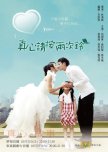
And yet... and yet... I’m reluctant to admit it, but there is something addictive in the drama. Something that pulls you back in and makes you watch it despite wanting to tear all your hair out because of the sheer idiocy of the character’s actions (and a lot of stiff acting). I think that draw may rest solely on Peter Ho’s shoulders, to be perfectly honest. He has a charisma on screen that can’t be denied, and he is very good at switching from being terribly heartbroken in one instant, angry in the next, and portraying such poignant self-hatred at himself in the last, all without having to say a word. It was awesome. He had so much control over his acting in this drama, I was duly impressed. I’ll definitely be looking more into his other works in the future.
All other performances, though, were questionable at best, something to be snickered at at their worst. I’ve seen the lead actress, Janine Chang, in one other drama — Sunny Happiness — and I don’t remember her being this embarrassingly bad at overacting. Or maybe it was just a pure /lack/ of acting. Her performance felt fake and cardboard-y most of the time, only coming through as natural when she was paired with Peter Ho in scenes where they weren’t fighting. I agree with the rest of comments on MDL that say they have good chemistry in this drama, because they do. They really do. Their scenes together as a couple are some of the best moments to look forward to, really.
It’s not only the acting that’s like cardboard, though. The story is also predictable, full of clichés, and terribly managed. I liked where they were going with it in the first 2 episodes maybe, but then we got to the meat of the story. The core of the story is essentially making our cardboard heroine go through all these “trials and tribulations” that make the male lead notice her and gradually want to “put her on the right path” where she could actually, y’know, succeed in life and raise her child properly. Except, of course, she doesn’t want to be “on the right path,” she wants to be on the “noble idiot, self-righteous path” that only makes her and everyone around her miserable in the end. And then the ex’s come back. And then someone’s sacrificing their “happiness” for the person they love — hurting the other person terribly in the process — because that’s what “good people” do, right? Riiight? -.- Gah. I can’t tell you how many times I almost dropped this drama because of the ridiculous scenes it kept showing me one. After. Another. Over. And. Over. Again. Like I said before, 99.999999% of this drama’s problems all had one simple solution : Communication. Simple, effective communication. The problems they were dealing with weren’t even that severe; the writers just kept making so many mountains out of molehills to keep the story dragging on. (I can’t even count how many insignificant, meandering side stories the drama has...)
Let me take this moment to mention the OST as well. 4 words: “Twinkle Twinkle Little Star.” How much do you like this song? No matter your answer, I’m sure after watching this drama, that like will drop about 10 notches. From now on, every time you hear those sweet beginning verses, it’ll dredge up shuddering recollections of a story so full of holes and directing so shoddy, the music will change tracks like 5 times in one scene to fit a general, repetitive sequence of events —> Chase scene! Dramatic accident! Romantic follow-up! But No! I can’t love you! I’ll only hurt you! I must run away! I won’t even try to explain my reasoning! And how dare you ever ask me why!~ Cue : “Twinkle, twinkle little star...” -.- This drama, I swear...
But! when it was good, it really was good. Mainly when Peter Ho was on the screen, but sometimes he could also improve Janine’s acting if they were together and all she had to be was happy. You’ll find yourself routing for them even as female lead does everything in her power to destroy her own happiness (for the millionth time.) The little girl, Duo Duo, was also cute to watch. A little too mature to be in kindergarten, but whatevs. That was the least of the drama’s problems.
It’s a good drama if melodrama and characters going through abysmal situations is your thing. (I admit, I have a weakness to this... heh, probably how I pulled through completing this diamond in the rough). And if you like fairy tale-type stories where everything is tied into a neat little bow at the end, this is also the drama for you. All of our main characters get an epilogue at the end showing how they’ll pull through in the future (and potentially stop making themselves miserable!) That was nice, I guess...
Was this review helpful to you?
























